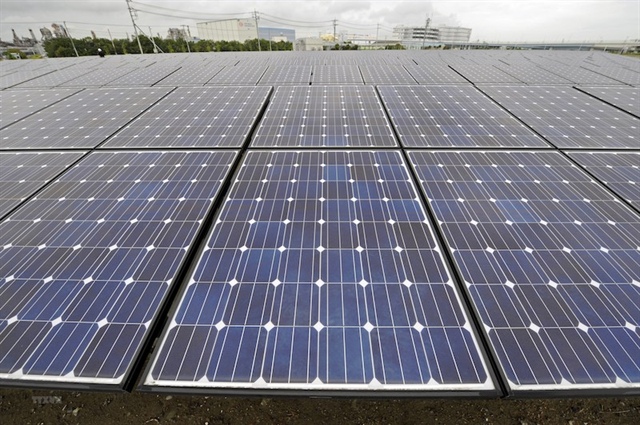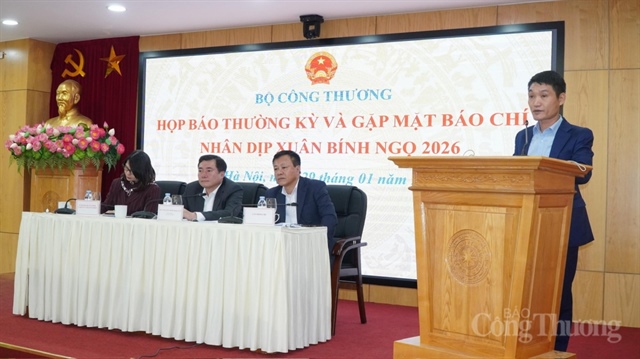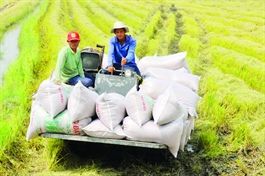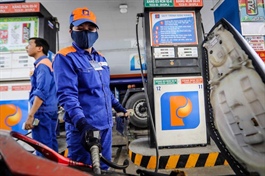US to exempt tariffs on solar cells from Vietnam and Southeast Asia
US to exempt tariffs on solar cells from Vietnam and Southeast Asia
Imported solar panels remain an important part of addressing the energy needs of the American people.
The US will allow solar panels to be imported from Vietnam and three other Southeast Asian countries without tariffs for a 24-month period.

Vietnam, Cambodia, and other Southeast Asian countries are the US's importers of solar panels. Photo: TTXVN |
This is US President Joe Biden’s emergency declaration regarding the temporary duty-free importation of solar cells and modules from Thailand, Malaysia, Cambodia, and Vietnam to avoid disruptions to the electric power system, which was announced on the White House's website on June 6.
In recent years, the vast majority of solar modules installed in the US were imported, with those from Southeast Asia making up approximately three-quarters of imported modules in 2020.
Recently, however, the country has been unable to import solar modules in sufficient quantities to ensure solar capacity additions necessary to achieve our climate and clean energy goals, ensure electricity grid resource adequacy, and help combat rising energy prices.
This acute shortage of solar modules and module components has abruptly put at risk near-term solar capacity additions that could otherwise have the potential to help ensure the sufficiency of electricity generation to meet customer demand, the statement noted.
The tariff exemption for solar panels from these four countries is intended to ensure that the US can access an adequate supply of solar modules and meet the needs of electricity production in the context of a surge in domestic production.
Following President Biden’s emergency declaration, Secretary of Commerce Gina Raimondo said: “As we invest in expanding domestic solar manufacturing and strengthening supply chains to protect our long-term energy security, imported solar panels remain an important component to addressing the immediate demands of bringing additional energy sources online and addressing the energy needs of the American people.”
As droughts cripple the West and Russia’s unwarranted invasion of Ukraine has placed increasing strains on America’s energy market, preventing disruptions to the electric power system, diversifying the US energy sources, and responding to the climate crisis have never been more urgent, and solar energy is an essential component of meeting those needs.
She added: “The President's emergency declaration ensures America’s families have access to reliable and clean electricity while also ensuring we have the ability to hold our trading partners accountable to their commitments.”
Assistant Secretary of Commerce for Enforcement and Compliance Lisa Wang also released a statement: Pursuant to the President’s Proclamation, the Department of Commerce will issue regulations to temporarily permit for up to 24 months duty-free access to solar cells and modules from Cambodia, Malaysia, Thailand, and Vietnam.
“We will continue to rigorously enforce US trade laws, hold our trading partners accountable, and defend US industries and workers from unfair imports,” she underlined.
Existing duties on Chinese and Taiwanese imports of solar cells and modules remain in effect.
In late March, the US Department of Commerce initiated an anti-dumping and countervailing investigation on solar modules imported from Vietnam, Thailand, Malaysia and Cambodia. The requirement aimed to decide whether solar cells and modules produced in four countries, using parts and components from China and exported to the US, were circumventing antidumping and countervailing duty orders on solar cells and modules from China.



























